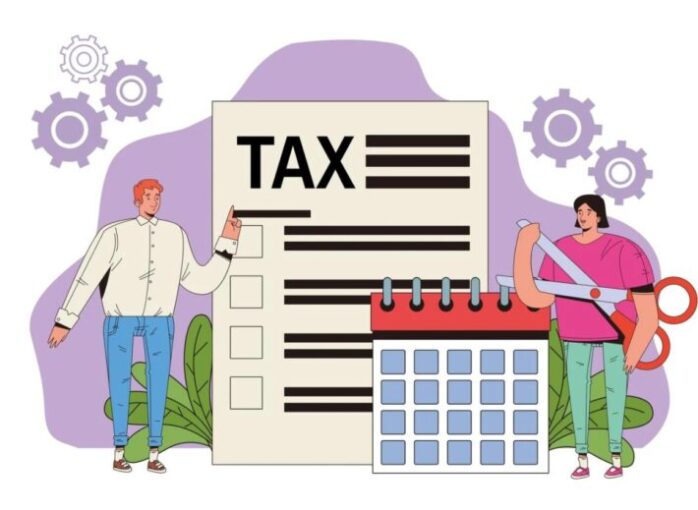
Accounting is often looked at as a course or classes important to specific careers. This assumption is not entirely true.
While accounting does open you up to many accounting and finance-related career choices, it does way more than that.
Accounting, like math, is among the few subjects studied in class practical in your day-to-day life. While you might not think much of it as you go about your life, you probably use accounting principles several times each day as you go about your everyday life.
Here, learn about some real-life applications of accounting and some ways you have been using them unconsciously.
1. Reconciliation

Reconciliation is comparing two separate records to ensure listed figures are accurate and tally; this can help flag differences that occur erroneously or that can be explained satisfactorily.
One way to demonstrate reconciliation is when making a purchase. At some point, you are likely to look at your receipt. Here you check the amount of what you have bought versus the cash you paid to the cashier and the change you received.
If all the figures are accurate, you are good to go; if not, you raise the issue with the cashier.
The second example is when you go through your bank statements. You check these against your receipts and spending. You also look at the bank charges to ensure the charges are correct and that what cleared your account is what you spent.
There are two examples of reconciliation that you use daily and that are firmly rooted in accounting principles.
2. Budgeting and Tracking Spending

Think about a scenario where you spend more money than you have. At some point, this will lead to some negative consequences, such as having to get into debt and a zero or negative bank balance, which places you in a precarious situation.
To avoid this, people create a budget. An adequate budget looks at income and expenses and ensures you have enough to cover all costs at the end of a set pay period. This takes into account both a salary and additional income from other sources.
If your expenses exceed your total income, look into cost-cutting measures to ensure you only spend what you have.
This is something professional accountants do for organizations and businesses. Their goal in doing this is to ensure profitability. On a personal level, you will use budgeting to manage your finances better.
3. Future Planning

Even your budget and track your current spending, planning your financial future is imperative as well. Take retirement, for example; you need to start thinking about life after retirement and creating a financial cushion for yourself while you are in your working years.
The same goes for your children’s college funds, vacations, car purchases, owning a home, and so on.
Future planning includes saving goals, investments, analyzing, and debt control. All these processes are founded in accounting.
Every time you plan to spend your money, save it, or invest it in affording certain things in the future, you are doing some accounting.
4. Entrepreneurship

Some accounting is bound to involve running a fully-fledged business or doing some freelance work in the evenings and on weekends.
For a business enterprise, a business owner needs to understand accounting to read their books and understand the financial health of their business and make business decisions.
If you are running a small freelance or selling items on a website or in person, you will need accounting for several functions; this includes inventory planning, calculating profits/losses, pricing, and so on.
Indeed one of the critical points for students to study accounting is that it supports entrepreneurship. This is well recognized, and schools are quickly taking it up and making it a core course.
If you find that accounting is part of your pre-requisite courses, approach it positively, as accounting will be necessary for your day-to-day life. Check this website for help whenever you feel stuck or get overwhelmed with your accounting courses.
5. Investments

One of the best things you can do to secure your financial future is to make suitable investments. These are key in building wealth and providing additional sources of income that can cushion you if you were to run into problems with your primary source of income.
However, a lot goes into investing. It would help if you looked at the capital overlay, make projections of profitability, and figure out your Return on Investment.
All these require some accounting.
Granted, you can hire an investment accountant to oversee your investments. However, it helps to have some accounting knowledge as this allows you to analyze your investment options and have a more hands-on approach.
6. For Tax Purposes

Tax payment is a federal requirement for both individuals and companies.
These have to be prepared and paid in due time. Failure to this and you start to accumulate penalties and interest on the outstanding amounts. With time, you might be subjected to liens and your properties garnished. Extreme tax evasion can lead to jail time.
It, therefore, helps to prepare your tax returns and pay them on time. This is supported by accounting knowledge. Again, you can hire a tax accountant to do this for you. However, knowing how to do it yourself saves you some money. You can also monetize it by preparing taxes for other people at a fee.
7. Credit Management

Most people will require a credit facility along the way. These are mainly for large ticket items like house purchases, car loans, and to resolve financial emergencies.
The goal when taking a facility is to analyze its affordability in terms of the chargeable interest. You also have to look at the repayable installments Vis a Vis your income. These considerations help you make determinations on how well you can afford a facility.
These actions are accounting-based.
In Summary
As you can see, accounting is more than just a course to help you graduate. The skills you learn here will be instrumental in so many other areas of your life.











